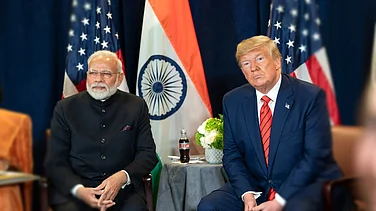After over four months of negotiations, private equity major Bain Capital is all set to close the deal and take majority stake in Kerala-based NBFC Manappuram Finance, MoneyControl reported. The non-banking financial company, promoted by VP Nandakumar, also provides gold loan. Notably, it is India’s second largest gold financier.
As per the report, the deal is expected to be completed in two parts ---in first leg, Bain will acquire 22% stake from Nandakumar in an all-cash process and in second leg, Bain may open an open offer for additional 20% stake, whose price will be decided as per Sebi regulations.
The negotiations kicked off with Nandakumar and Manappuram in November last year. However, the deal remain unresolved until January this year when Manappuram’s microfinance subsdiary, Asirvad Micro Finance Limited came out of the embargo imposed by the Reserve Bank of India (RBI).
What Delayed the Bain-Manappuram Deal?
During an earnings call with analysts on February 13, Nandakumar said, “It is quite common to have discussions, but discussions don’t mean that we have reached anywhere”. The discussions faced many hurdles as Bain was only interested in Manappuram’s gold loan business.
Manappuram’s net profit halved to Rs 282 crore in the third quarter, while Asirvad’s bad loans and provisions surged fourfold to Rs 473 crore. Its consolidated assets under management (AUM) grew 9.5% year-on-year to Rs 44,217 crore in the December quarter, with Asirvad Micro Finance contributing around 23% (Rs 10,013 crore) to the total AUM.
However, the promoter group insisted on selling major stakes not just in Manappuram Finance but also across its subsidiary businesses, including vehicle loans, housing finance, MSME lending, and microfinance.
The major reason behind the delay in deal is Asirvad Micro Finance. The Manappuram’s microfinance subsidiary was barred by the RBI from sanctioning and disbursing loans effective October 21 last year due to non-compliance with regulatory guidelines. The central bank raised concerns over “usurious” pricing and excessive mark-ups over funding costs. These restrictions were lifting only on January 8 this year.
































